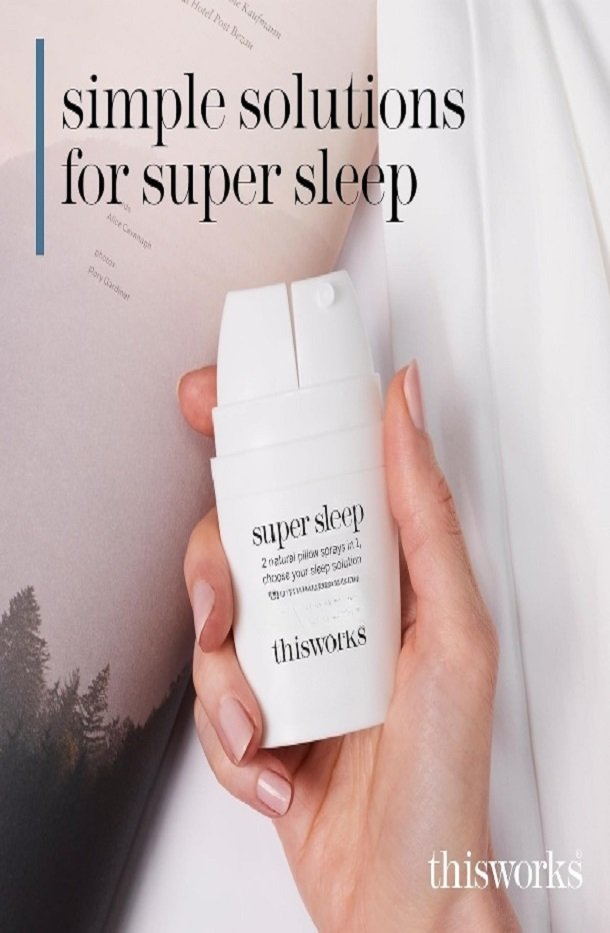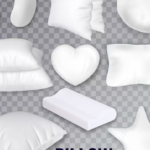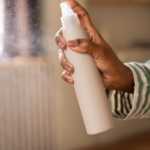Deep sleep pillow sprays are a tool that many have turned to for a more restful night. With their promise of deeper and more restful sleep, these sprays often contain essential oils like lavender and chamomile, which are known for their calming effects. The appeal is undeniable: a quick spray on your pillow before bed, and you’re supposed to be able to fall asleep faster and sleep more soundly.
However, while this sleep aid has its benefits, it’s important to be aware of the potential side effects and risks that come with daily use of such products. Chemical compounds in these sprays can lead to allergic reactions and may have long-term effects on your health, so it’s important to consider both the positive and negative impacts before you decide to use them as a nightly tool.
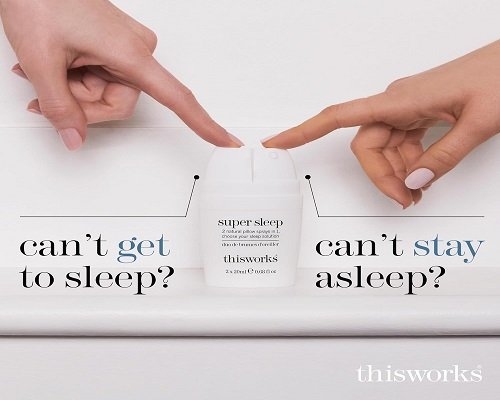
What’s Inside Your Deep Sleep Pillow Spray?
So, what exactly is inside the deep sleep pillow sprays? They are usually formulated with a blend of essential oils like chamomile, lavender, and vetiver which have been shown to have relaxing and sedative properties. These oils are designed to help you fall asleep faster by enhancing sleep quality. When you spray a small amount onto your pillow before bedtime, the inhalation of these scents throughout the night is believed to help calm the mind and support a more restful sleep. While they may offer immediate relief, it’s crucial to understand the science behind how these oils work, and the possible side effects of their regular use.
Common Ingredients in Deep Sleep Pillow Sprays and Their Benefits
The ingredients in these sprays often include natural essential oils such as lavender and chamomile, which have known calming and soothing properties. These oils are believed to reduce anxiety and promote relaxation, making it easier to fall asleep. Additionally, valerian root extract is another common ingredient, recognized for its sleep-promoting effects. It helps increase the levels of GABA in the brain, which has a calming effect on the central nervous system. Other ingredients such as bergamot oil and ylang ylang are used for their mood-enhancing and stress-relieving qualities.
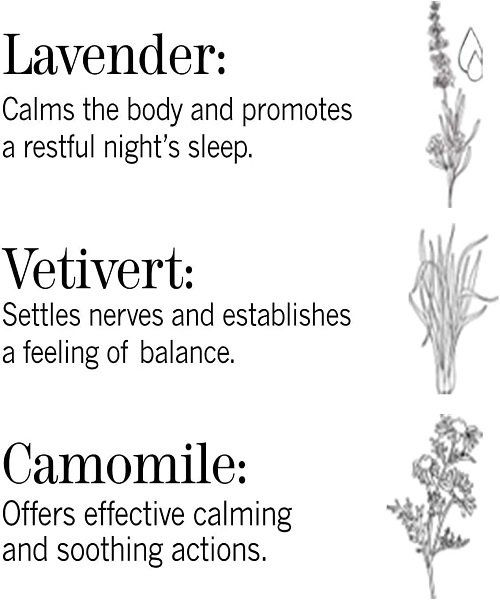
However, it’s important to note that while these natural components can be effective, some sprays may also contain synthetic additives to prolong the fragrance, which can have adverse effects on health.
1. Soothing Power of Lavender and Chamomile
Lavender and chamomile are popular essential oils found in many deep sleep pillow sprays. These natural oils are celebrated for their calming and soothing properties. Lavender, in particular, is known to reduce anxiety and enhance relaxation, making it easier for individuals to fall asleep. Similarly, chamomile is famous for its mild sedative effects, helping to promote restful sleep.
2. Sleep-Promoting Valerian Root Extract
Valerian root extract is another commonly included ingredient in sleep sprays. This natural extract is recognized for its sleep-promoting benefits. Valerian root helps to increase the levels of gamma-aminobutyric acid (GABA) in the brain. GABA is a neurotransmitter that has a calming effect on the central nervous system, aiding in the reduction of anxiety and the promotion of relaxation.
3. Mood-Enhancing Bergamot Oil and Ylang Ylang
Bergamot oil and ylang ylang are also frequently used in pillow sprays for their mood-enhancing and stress-relieving properties. Bergamot oil is known for its ability to uplift the mood and reduce feelings of stress and anxiety. On the other hand, ylang ylang has a sweet, floral scent that helps to alleviate stress and induce a sense of peace and tranquility, contributing to better sleep quality.
4. Potential Risks of Synthetic Additives
While natural ingredients are highly beneficial, it is important to be aware that some deep sleep pillow sprays may contain synthetic additives. These additives are often included to prolong the fragrance of the spray. However, they can have adverse effects on health, especially for individuals with sensitivities or allergies. It is always advisable to check the label for any synthetic components and opt for products with all-natural ingredients when possible.
By understanding the common ingredients in deep sleep pillow sprays and their specific benefits, individuals can make informed choices to enhance their sleep quality naturally and effectively.
Are Deep Sleep Pillow Sprays Safe? Potential Side Effects to Consider
While deep sleep pillow sprays offer a quick solution for better sleep, they can come with side effects. Here are five major risks to be aware of:
Disruption of Natural Sleep Patterns
Regular use of pillow sprays can potentially disrupt the body’s natural sleep-wake cycle. Over time, users may become dependent on the spray to fall asleep, making it harder to sleep without it. This reliance can interfere with the body’s ability to regulate its own sleep patterns naturally.
Tolerance and Dependency
Continuous use of these sprays can lead to tolerance, where the body adapts to the ingredients, and higher doses are needed to achieve the same sleep-inducing effect. This can create psychological dependency, where the user believes they cannot sleep without the spray further entrenching the habit.
Allergic Reactions and Respiratory Issues
The essential oils and fragrances in these sprays may trigger allergic reactions or respiratory issues. Symptoms can include skin irritation, swelling, sneezing, and difficulty breathing. Some individuals with respiratory conditions like asthma may experience aggravated symptoms, making it important to use these products with caution.
Chemical Exposure and Potential Toxicity
Some sprays contain synthetic fragrances and preservatives that can be absorbed through the skin or inhaled. Chronic exposure to these chemicals may lead to long-term health effects such as hormonal disruption, neurotoxicity, or even cancer in extreme cases. It’s essential to check the ingredients and choose products free from harmful additives.
Environmental Concerns
The aerosol emissions and synthetic chemicals from these sprays contribute to environmental pollution. Improper disposal can contaminate water sources and soil, posing a risk to ecosystems and wildlife. Opting for eco-friendly products and proper disposal methods can mitigate these environmental risks.
Understanding these potential side effects can help you make more informed choices about using deep sleep pillow sprays and explore safer alternatives for improving your sleep quality.
Safe and Effective Alternatives to Deep Sleep Pillow Sprays
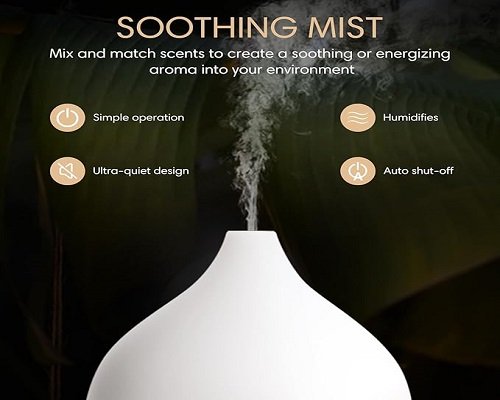
For those concerned about the side effects of deep sleep pillow sprays, there are many natural alternatives that can help promote better sleep. Some effective alternatives include:
- Diffusing essential oils such as lavender, chamomile, and cedarwood in your bedroom. These oils help relax both the mind and body before bedtime.
- Herbal teas like chamomile, valerian root, and passionflower offer sedative effects that can help you relax and improve sleep quality.
- Aromatherapy roll-ons are a convenient alternative to sprays. Applying calming essential oil blends to pulse points like your wrists, temples, or behind your ears can promote relaxation without the aerosol.
- Establishing a bedtime routine that includes relaxing activities like taking a warm bath with soothing bath salts, or reading a book under soft, dim lighting, signals to your body that it’s time to unwind.
- Room environment adjustments, such as keeping your bedroom cool, dark, and quiet, can make a huge difference in sleep quality. Consider using blackout curtains, white noise machines, or earplugs to minimize disruptions.
Additionally, incorporating mindfulness and relaxation techniques like deep breathing exercises, progressive muscle relaxation, or meditation before bed can help achieve a restful state conducive to sleep. Maintaining good sleep hygiene practices such as a consistent sleep schedule and avoiding caffeine and heavy meals close to bedtime is also crucial.
Understanding the Psychological Impact of Relying on Pillow Sprays for Sleep
In addition to the physical side effects, deep sleep pillow sprays can also have psychological impacts. Regular use can create a psychological dependency on the product, where the user believes they cannot achieve deep sleep without it. This dependency can mask underlying issues like stress, anxiety, or poor sleep hygiene, which could be contributing to the sleep problems in the first place.
Conclusion
To conclude, deep sleep pillow sprays can be a convenient and alluring solution for those seeking relief from sleep disturbances, they come with potential risks. The chemical compounds and synthetic additives in some sprays can lead to a range of side effects, including skin irritation, respiratory issues, and even psychological dependency. These products may seem like a quick fix, but understanding the possible health and environmental impacts is essential.
Before making them a regular part of your bedtime routine, it’s important to weigh the potential risks against their benefits and consider natural alternatives that may support better sleep quality without the same potential downsides. With proper awareness and careful consideration, you can make informed choices about your sleep aid options and work towards improving your overall sleep hygiene.
FAQs
Are deep sleep pillow sprays safe?
While deep sleep pillow sprays are generally safe when used occasionally, they can cause side effects such as skin irritation, respiratory issues, and psychological dependency if used regularly. Be mindful of the ingredients and avoid overuse.
Can deep sleep pillow sprays cause allergic reactions?
Yes, pillow sprays containing essential oils or synthetic fragrances can cause allergic reactions, including skin redness, swelling, or difficulty breathing, especially in individuals with sensitivities or respiratory conditions like asthma.
How long does the effect of a deep sleep pillow spray last?
The effects of a deep sleep pillow spray typically last for the duration of the night, as the scents from the oils are inhaled throughout your sleep cycle. However, tolerance can develop over time, making the effects less noticeable.
What can I use instead of deep sleep pillow sprays?
Natural alternatives like diffusing essential oils, drinking herbal teas, and using aromatherapy roll-ons can help promote relaxation and improve sleep quality without the potential risks of pillow sprays.
More to Explore:
Anti-Allergy Pillows Aromatherapy Pillows Meditation Pillows.
Bamboo Pillows Natural Latex Pillows Organic Cotton Pillows Recycled Material Pillows

